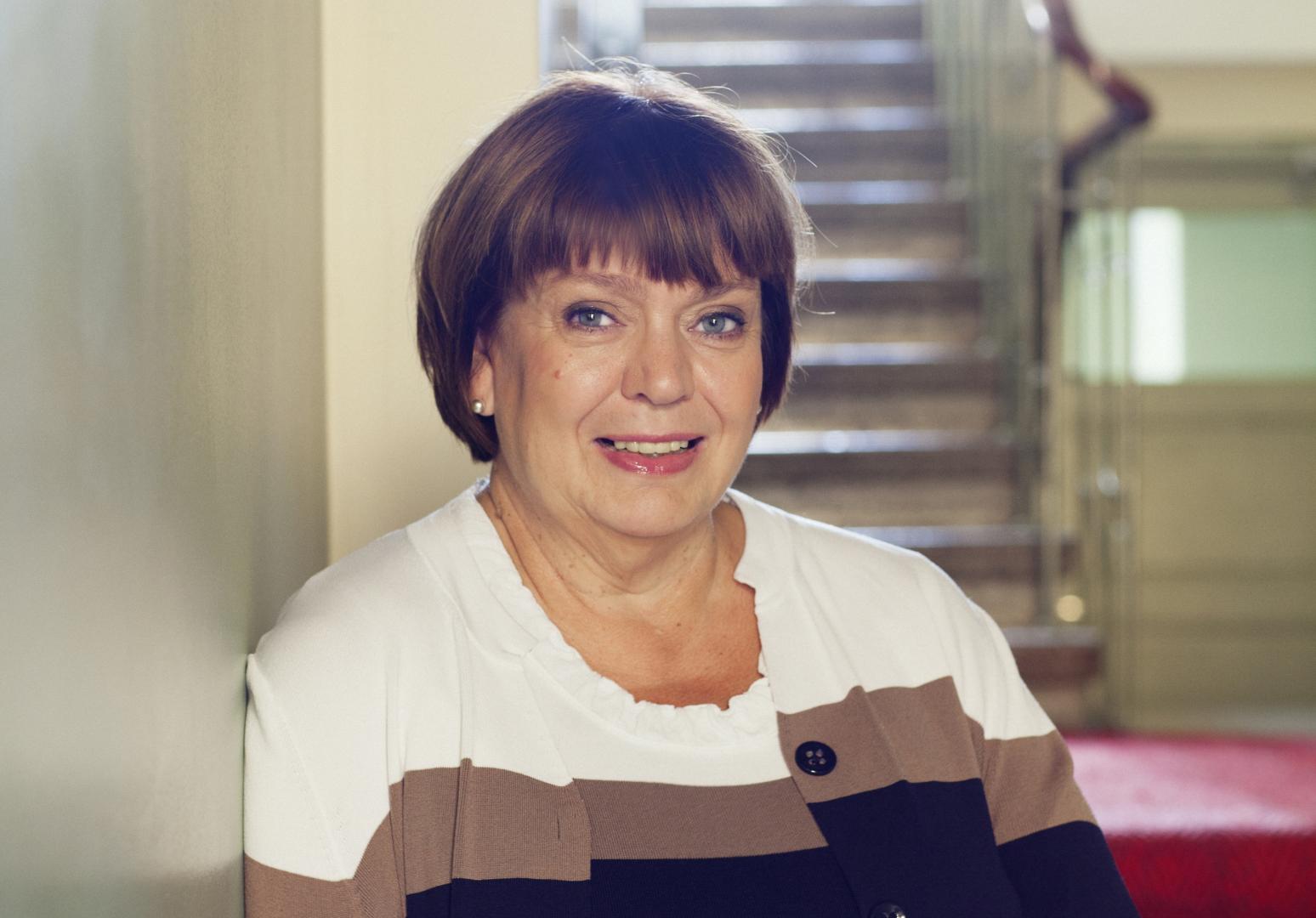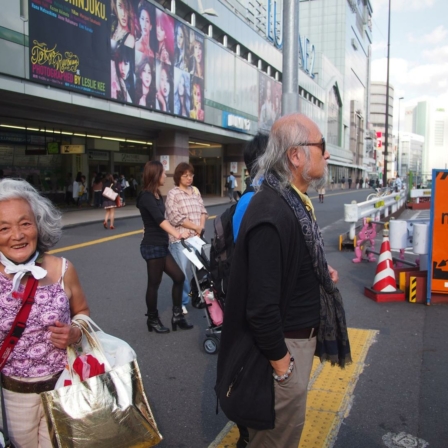Sitra is embarking on a major two-year project area aimed at exploring the best ways to prepare Finland’s population for ageing. The theme will consider means to improve the well-being of Finland’s senior population and give them the tools and services to lead active, happy and independent lives.
The old. The elderly. Senior citizens. Grey. Pensioners. All ways we variously describe the sector of the population that are at or over retirement age. In Finland’s case, that’s 1.4 million people, just over a quarter of the whole population.
Now contrast the above, rather unflattering, descriptions with these: Best time of my life. Confident. Master of my own life. I want to contribute and feel useful. All examples thrown up by the respondents to a major survey of 1500 people carried out by Finland’s most widely read magazine, ET, published twenty times a year, read by an estimated 650 000 people and which is celebrating its fortieth anniversary at a time when it’s arguably never been stronger. And its readership? Almost exclusively the over 55s, a generation seen in many countries now as the new upwardly mobile class.
ET’s editor-in-chief, Riitta Korhonen, says they set out to measure how happy Finland’s retired (and soon-to-be-retired) population feels. “Best time of my life” is a phrase that Korhonen says resonated loudly throughout. And yet, “Many of our respondents told us they don’t feel valuable if they don’t do something for society. Or for their family. The women especially said they feel like they now have the courage to be themselves more, that age gives them confidence. They no longer feel like little girls, they have a voice and they want to use it.”
And herein lies the root of a moral and societal quandary that is threatening to exacerbate the economic difficulties facing so many developed economies, including Finland: how to fund more and more pensions and yet at the same time care for a knowledgeable and experienced quarter of society, many of whom feel they can still contribute.
The average life expectancy in Finland currently stands at 81, a figure likely to increase drastically if some projections turn out to be true (Finland also ranks in the top five of countries in the world with the highest percentage of the population over the age of 60 – 26 per cent). Economies all over the world are grappling with the economic dilemma thrown up by these rapidly ageing populations, nowhere more so than in Japan, where, if current trends continue, the population will shrink by a third by 2060, with enormous consequences for the world’s third largest economy. Nonetheless, Japan’s society of longer lives, as Sitra’s East Asia expert Teppo Turkki describes them, are keen to keep working.
And according to Korhonen, retired Finns also find it hard to forget the working life that shaped them: “In face-to-face interviews, most of the people said the main thing that makes them happy is that they’re masters of their life, that they have more free time. But at the same time, they have a very strong identity with their work. They missed their work and were thinking perhaps I can do something, perhaps I can go to the third sector. And yet at the same time they say that ‘work took too much of my life. Now I have time to do what I want, I want to go back to my youth.’”
Balancing acts
It seems Finland has on its hands an enthusiastic, largely happy, willing and experienced sector of society, many of whom are clear about what makes the perfect work-life balance. Add to that the fact that half of those surveyed by ET said they actually wanted to return to work. “We asked another question of those people,” says Korhonen. “Do you want to be paid for that work? And about 40 per cent said it’s enough that I feel useful. So it’s a good sign for the third sector.”
In fact, statistics suggest that 100 000 Finns of retirement age went back to work in some form over the last two years. It’s a trend that has recently been backed up by the first report of its kind, looking at the working habits of retirees. So the appetite for contributing is clearly there for many, even if there is sometimes a moral reluctance, as Korhonen points out, “Some older people think that it’s not fair that they go back to work, because there’s so much unemployment in the country, why should I take a job if I can give it to the younger ones?”
But how does society and the government view this enthusiasm from large swathes of the retirement age population? Is it being taken advantage of, or is it really so that society as a whole feels that people above a certain age have nothing left to give?
The difficulty, according to Korhonen, is that there are not as many opportunities to welcome back older workers as there might be: “The big companies don’t have the programmes to do it. I think the smaller companies can make it easier because it is not so bureaucratic to get someone to work two or three hours, but the big companies don’t have the programmes, which I find surprising.”
Another stumbling block, she says, is the traditional Finnish working pattern. While other countries’ inhabitants may work longer hours, Finns could benefit from more flexibility: “We don’t have a culture for half or part-time work at all. I think it’s necessary. We have to change the whole social security system. There are not enough Finns. It can’t work if half the population is retired and the other half are paying taxes. We also don’t have enough foreign workers. It’s not in balance.”
And while Finland ranks at or near the top of seemingly every global lifestyle study these days, its absence in the top ten of the Global Agewatch Index 2013 is marked. Responding to the results, the chair of the Finnish elderly people’s association Valtaa Vanhuus, Vappu Taipale, said: “The elderly should be included as full active members in society. This is not apparent here at the moment. It seems that people just disappear once they reach retirement. They are not needed, no one hears anything about us.”
Changing attitudes?
While overseeing ET’s survey, Riitta Korhonen recalls a paraphrasing of the quote attributed to the American economist and philanthropist, Bernard Baruch: “To me, old age is always fifteen years older than me.” It’s a quote that perfectly sums up the subjective nature of what is old or elderly, particularly in light of the retirement ages society imposes on its citizens.
So, could there be an answer to the economic conundrum facing many economies as well as to the ethical discomfort of deciding when people’s usefulness has run its course? Could a different balance actually increase the overall well-being of our ageing societies, and of the economy? And where does that change come from?
Korhonen is not sure, but she’s very aware of how the elderly are currently perceived: “It’s the attitude of society against getting old,” she says. “In Finland it’s very strong. I have noticed you can only stand the old people if they are behaving like young ones – if they’re very rock and roll, then it’s nice that you are old. But to be a bit old and a bit silent, that’s not good.”
And as for the attitude to older people working, again it seems it’s all about balance: “There has been a discussion about people in their last years of work, that there should be a programme where the bosses should look after those [older people] who shouldn’t work so hard, that their tempo of work should be different. But at the same time, the older people themselves said ‘hey, no! I don’t want that. I want to be one of them, I want to be as strong, as quick.’ So, it’s difficult. How do we handle this?”
One could argue that the older generation – not just in Finland, but in many countries – is suffering from too much pigeon-holing, assumptions made by society as a whole (and, in the case of compulsory retirement ages, enshrined in law) that others will decide what is best for them.
And for those of a younger vintage reading this, a word of warning about taking things for granted. Korhonen tells the tale of a retired respondent to her survey whose daughter had assumed her retirement meant she’d spend more time with the grandchildren: “She had her retirement party at work and went to her daughter and told her daughter, ‘hey, I’m free, I’m going for half a year to be an au pair for a family in Switzerland. I want to change my life, I don’t want to stay here and become a servant for your family.’ It was a shock for her daughter!”
Richard Savage




Recommended